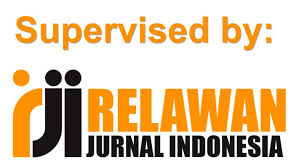Maqashid Syariah And Digital Transformation In Public Services: A Case Study Of The Lubuklinggau Post Office
DOI:
https://doi.org/10.37092/el-ghiroh.v23i1.1021Keywords:
Digital Transformation, Lubuklinggau City Post Office, Maqashid SyariahAbstract
This study investigates the impact of digital transformation on the performance of the Lubuklinggau City Post Office, framed within the perspective of Maqashid Syariah. The introduction highlights the necessity of adapting to digital advancements in public services, emphasizing the importance of efficiency, ethical practices, and community welfare. As the digital era progresses, public institutions must evolve to meet the changing needs of society while adhering to fundamental Islamic values. The methodology employed in this qualitative research involved direct observations and interviews with employees and management at the Lubuklinggau City Post Office. The researchers aimed to gather insights into the current digital initiatives implemented and their effects on service delivery and employee performance. The data collection process was structured in two stages: initial observations to understand the general context, followed by focused interviews to extract specific information relevant to the research objectives. The results indicate that the Lubuklinggau City Post Office has successfully integrated various digital services, such as electronic payments and online tracking systems, which have significantly improved operational efficiency and customer satisfaction. Employees reported enhanced performance due to clearer regulations and the availability of digital tools that facilitate their tasks. However, challenges such as information literacy and the potential for misinformation in the digital landscape were also identified. In the discussion, the findings are analyzed through the lens of Maqashid Syariah, illustrating how the digital transformation aligns with the principles of protecting assets and promoting community welfare. The study concludes that while digital transformation presents challenges, it also offers substantial opportunities for enhancing public service delivery, provided that ethical considerations and community needs are prioritized. This research contributes to the understanding of how public institutions can navigate the complexities of digital transformation while remaining committed to their core values.
Downloads
References
Handayani, F., & Fauzi, F. 2023. Kendala-Kendala Yang Dihadapi Digital Native Dalam Pencarian Informasi. Shaut Al-Maktabah?: Jurnal Perpustakaan, Arsip Dan Dokumentasi, 15(1), 31–39.
Hikmawati, F. 2020. Metodologi Penelitian. Sustainability, 11(1). https://doi.org/10.1016/j.regsciurbeco.2008.06.005
Indonesia, P. 2024. Visi, Misi, Tujuan dan Tata Nilai. https://www.posindonesia.co.id/id/pages/visi-misi-tujuan-dan-tata-nilai
Istiqomah, N. 2023. Transformasi Digital. Tahta Medfia Grup. https://jdih.kominfo.go.id/monografi_hukum/monografi/t/majalah/34
Lisawanto, L., Mantri, Y. M., Yusuf, R., & Mohdari, M. 2023. Digitalisasi PT Pos dalam Meningkatkan Kepuasan Pelanggan PT Pos Indonesia. Ekonomis: Journal of Economics and Business, 7(1), 667.
Mastarida, F., Sahir, S., Ratnasari, E., Hasibuan, A., Siagian, V., Hariningsih, E., Fajrillah, Gustiana, Z., Tjiptadi, D., & Pakpahan, A. 2022. Strategi Transformasi Digital. Yayasan Kita Menulis.
Munajah Nasution, A., & Aslami, N. 2022. Upaya PT Pos Indonesia Dalam Melakukan Inovasi Layanan Di Era Revolusi Industri 4.0. ManBiz: Journal of Management and Business, 1(2), 95–102.
Munir. 2017. Pembelajaran Digital. Alfabeta.
Nadya Fardha Lubis, & Riyan Pradesyah. (2024). Pengaruh Transformasi Digital dan Bisnis Online Terhadap Pola Perilaku Masyarakat dalam Menggunakan M-Banking Syariah: Studi Kasus pada Masyarakat Martubung. El-Mal: Jurnal Kajian Ekonomi & Bisnis Islam, 5(4), 3412–3425.
Pradoko, A. M. S. 2023. Paradigma Metode Penelitian Kualitatif (Keenam, Vol. 148). UNY Press.
Priansa, D. J. 2017. Perilaku Konsumen Dalam Persaingan Bisnis Kontemporer. Alfabeta.
Raysharie, P. I., Benius, B., Jati, A. R. P., Uke, R. A., Marbun, E. T. N., Simamora, N. S., Agatha, F., Aurelia, E. K., Aulia, S., Nesya, O. J., & Saputri, T. 2024. Dampak Transformasi Digital dan Kemajuan Teknologi terhadap Kinerja Organisasi. El-Mujtama: Jurnal Pengabdian Masyarakat, 4(3), 214–222. https://doi.org/10.47467/elmujtama.v4i3.1331
Royyana, A. 2018. Strategi Transformasi Digital Pada PT. Kimia Farma (Persero) TBK. Jurnal Sistem Informasi Kesehatan Masyarakat, 3(3), 15–32.
Santoso, Tjan, G. J., & Purnamasari, D. 2023. Tingkat Kesiapan Masyarakat Kota Semarang Terhadap Minat Teknologi Era Metaverse. Jurnal JTIK (Jurnal Teknologi Informasi Dan Komunikasi), 7(3), 389–403. https://doi.org/10.35870/jtik.v7i3.888
Sardiyo, Rimbano, D., Famalika, A., Nadziro, N., & Diana, H. S. 2022. Metodologi Penelitian. Rumah Cemerlang.
Downloads
Published
How to Cite
Issue
Section
License
Copyright (c) 2025 Wulandari Heryaniputri, Dheo Rimbano, Arisky Andrinaldo, Rudi Azhar

This work is licensed under a Creative Commons Attribution-NonCommercial-ShareAlike 4.0 International License.










